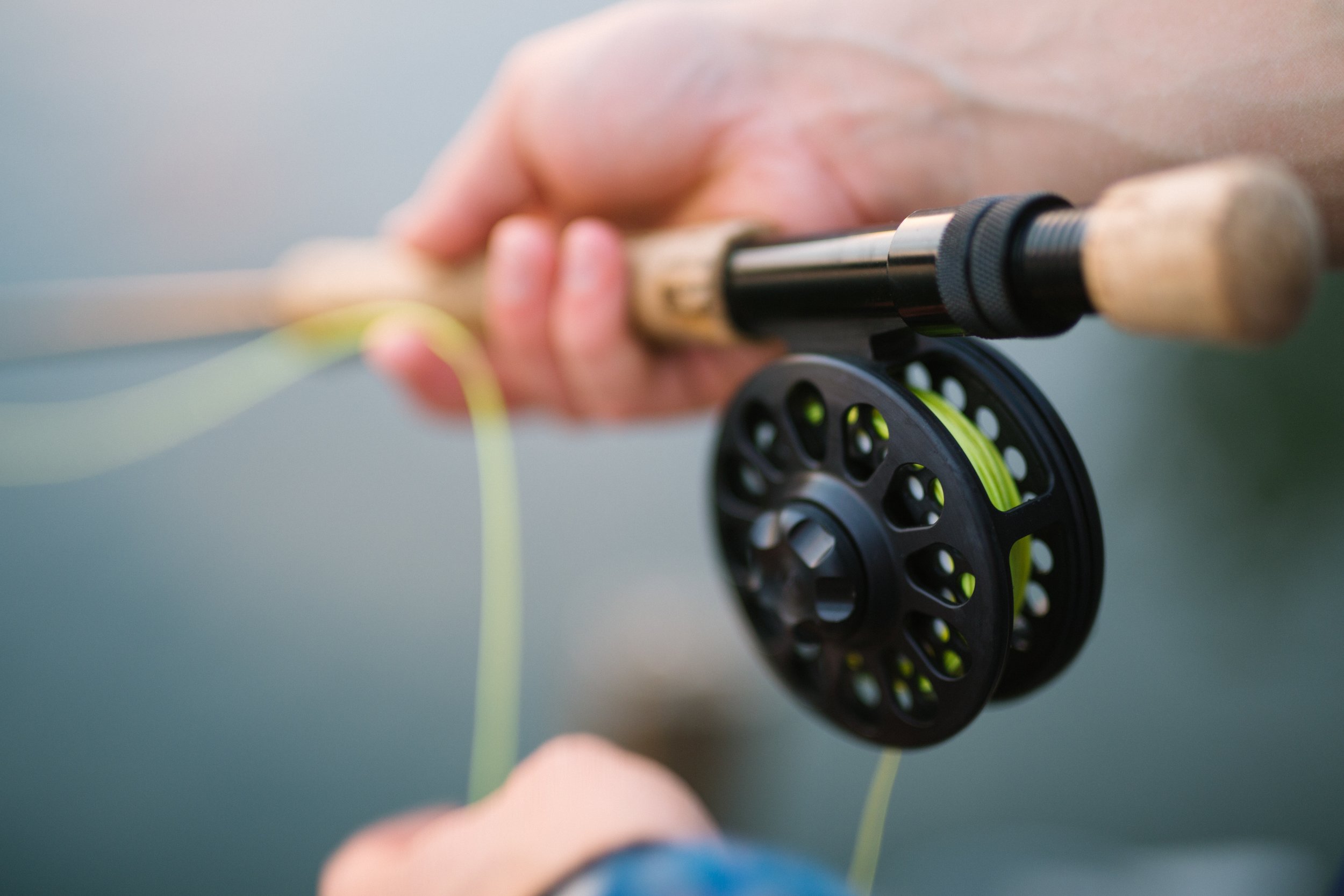by Bob Lupton

My boys and I were fishing the cool blue waters of the San Juan Islands off the Washington coast. It was a trip we had been planning for months, and it was not disappointing us. Each time our baited hooks reached the bottom, 50 feet below our boat, eager fish of various sorts competed for a taste. The flounder were especially hungry. They didn’t put up a big fight, but were a good size for the fish fry we were planning that evening. Suddenly, something large took my hook. I began to reel furiously. Whatever it was ran hard with my line, cutting and diving, pulling my pole first one direction then the other.
Just as I was beginning to win the battle, Jonathan, my youngest, hollered from the other side of the boat: “I got a big one!” Excitement erupted! Perhaps we had drifted into a school of huge fish. Jonathan and I both wrestled to pull in the monsters we had hooked.
As I gave a mighty pull on my line, I happened to notice Jon’s rod bend and nearly touch the water. He reacted with a powerful jerk, and simultaneously my pole bent nearly to the point of breaking. Strange. The second time this coordinated action occurred we both began to laugh. The fish I hooked (that turned out to be a shark) had gotten tangled up in Jon’s line and unknowingly both of us were trying to land it. Not until it was near the surface did we realize our heaving was more against each other than the fish. The tug-of-war was between two 240 pound men, not one four foot shark!
“You’re working hard, but you’re working against me.” My boys have made this humorous, slightly sarcastic comment (probably got it from me!) when someone trying to be helpful was slowing down progress. Actually, I see it happening in mission work quite a bit. A group of eager volunteers comes into the inner-city to pass out sandwiches and socks to the homeless, unaware that shelters in the area are trying hard to get the homeless off the street and into jobs. I think I can hear a shelter director saying to these compassion-motivated folk: “You’re working hard, but you’re working against me.”
Or short term missionaries arriving in a village with suitcases bulging with Nikes and jeans and T-shirts to distribute, not aware that their generosity is undermining local entrepreneurs who are trying to eke out a living selling clothes in their tiny shops. Or enthusiastic volunteers painting a church or digging latrines (or other tasks that locals could do themselves) not realizing that their “helpfulness” is actually working at cross-purposes with community leaders trying to encourage self-sufficiency and pride in their people.
Recently Paul Kagame, Rwanda’s president, made news by declaring a ban on used clothing coming into his country. The influx of donated clothes, he said, is devastating the garment industry in his country. And he is not alone. Kenya, Uganda, Burundi, Tanzania, and South Sudan have imposed or are considering similar bans.
The problems created by our well-intended charitable contributions have unintended consequences that perpetuate, rather than alleviate, poverty. Kenya, for example, once had a thriving textile industry powered by 110 large mills. Today only 15 remain. The cause of the decline in production and resulting job loss? Donated used clothes. I think I can hear an unemployed textile worker saying to us: “You’re working hard, but you’re working against me.”
It took a lot of reeling for Jon and me to finally land that fish. Actually, it was the boat captain who came to our rescue. When the fish broke the surface he scooped it into his large net, swung it aboard and with his knife cut off the tangle of line that was wrapped around it. In the future, he advised, we could avoid all this confusion if, when one of us hooks a fish, the others would wind in their lines until the fish is securely landed.
Perhaps it would be wise for those of us who would be “fishers of men” to seek first the wisdom of seasoned “captains” who can help us avoid counter-productive entanglements and competitive tug-of-wars.












